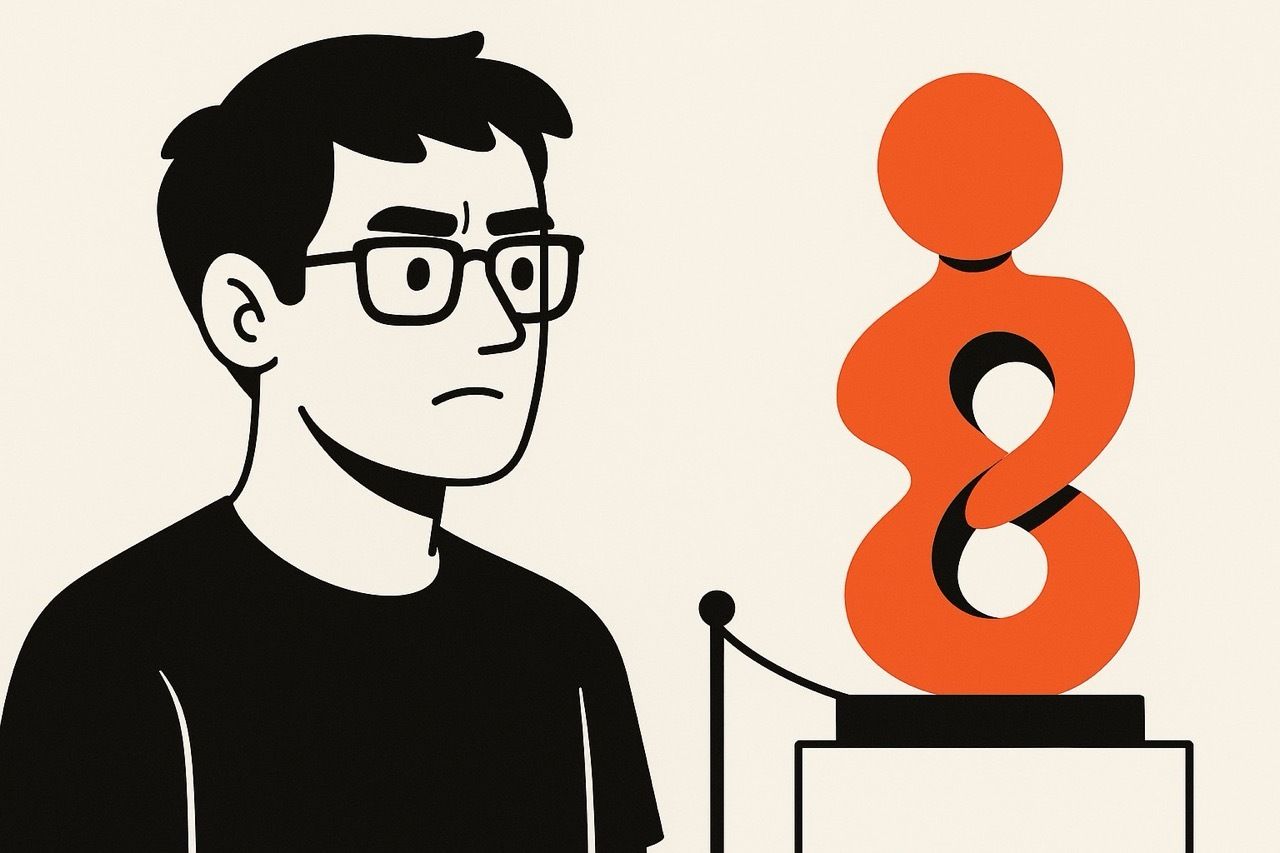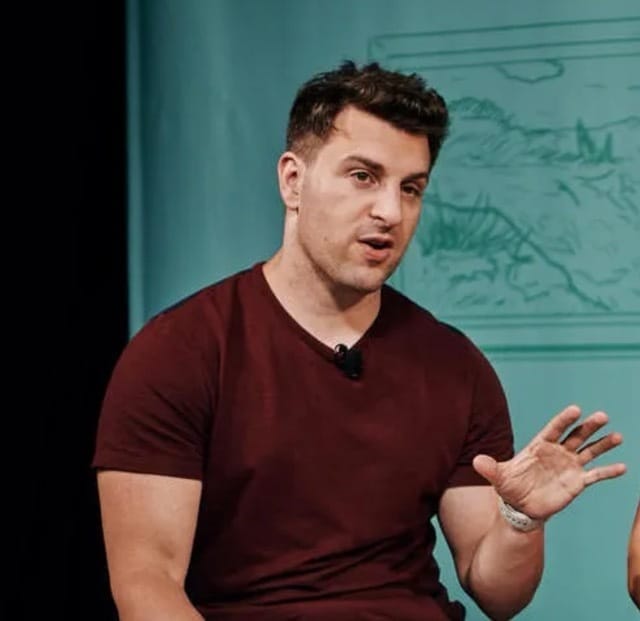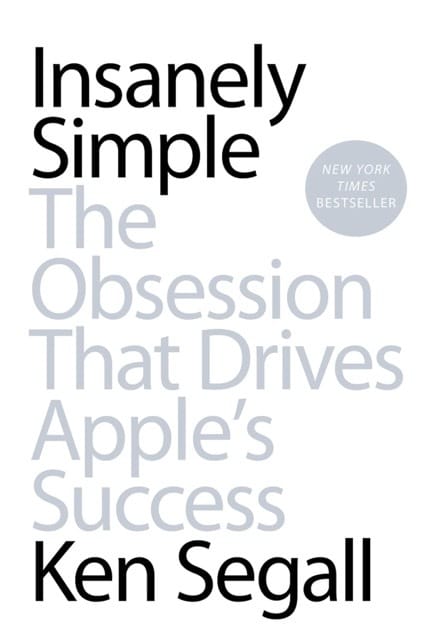- 👀 The Curious Procrastinator
- Posts
- #39. This is what happens when you stop pretending to be impressed
#39. This is what happens when you stop pretending to be impressed
Plus: Unpacked Brian Chesky and more...
Hello and welcome to your weekly dose of actionable (and occasionally provocative) things.
It was Juneteenth - a brand-new holiday in the US (basically still has that "new holiday smell"). Translation: surprise day off in the middle of the week.
Also translation: my wife declared a mandatory beach trip.
Non-negotiable. Zero room for debate.
Lucky for us, the beach is only 2.5 hours away - basically the same as a normal Tuesday morning commute in New York or Tokyo.
Cons: no internet, aggressive wind this time.
Pros: also no internet.
The experience? A perfect mix of survival training and mild sunburn.
I was cleaning salt off my sunglasses every 20 minutes, fixing semi-destroyed umbrellas, and reapplying sunscreen every hour like it was a full-time job.
As for showers? Impossible. Thanks to the sideways wind, water came out of the faucet almost at a 90-degree angle.
Surprisingly, none of this tanked my mood. I was vibing. Mostly.
Not gonna lie though - it got very close. I was about an hour away from my official "enough is enough" meltdown.
Conclusions:
Umbrellas are outdated. The new generation swears by Shibumi or Solbello - basically the only shade setups that actually provide shade instead of turning into airborne hazards. Currently researching.
And a 5-gallon water tank in the trunk? That's not overkill anymore - it's the new normal. New problems, new solutions. Definitely buying.
An ultrasonic glasses cleaner? Game changer. It brings your salt-encrusted sunglasses back to life like they just came out of the box. Been using one for years - highly recommend.
Enjoy the edition!
Table of Contents
Heads-up: If you’re reading this in Gmail (either in the browser or the app), you might not see the full content. Since our emails are packed with rich content, Gmail loves to clip them. You’ll see a small note at the bottom that says [Message clipped] View entire message. Just click that link - the rest of the content is waiting for you on our website.
Learn From My Mistakes
Short story of how I break life chaos into small, solvable problems - 3 min read.

A few weeks ago, I visited a modern art museum.
First one since pre-COVID.
Here’s the hot take:
Museums are like IKEA:
80% poor-quality junk
18% okay-ish stuff
2% (on a good day) actual gems
Of course, that’s 95% subjective.
Museums are meant to be solo.
I love roasting stuff out loud, but halfway through, I realized: the only way to make sense of modern art is alone.
No whispering explanations. No blurbs. Just me, squinting at a rusted pipe glued to plywood.
Spoiler: 80% of it didn’t deserve wall space. But hey - this isn’t a luxury business. Volume pays.
The only filter that made sense? Effort.
And I noticed it showed up in two ways:
The artist (or company - hello, original Macintosh by Apple Inc.) actually tried.
The work reflected years of refinement and simplification.
Take Picasso’s bull sketches. From full realism to a few bold lines. That’s intentional evolution.
Then compare it to a canvas with random splatters labeled “abstraction.” I’m sure someone saw depth. I saw laundry day gone wrong.
At least there were no bananas duct-taped to walls. Small wins.
So, what’s the point?
Simple: Fear of Missing Out.
That subtle pressure to stay impressed. Even when you’re not.
I paid for the ticket, so yes - I forced myself to examine every weird piece like a responsible adult.
And even when I didn’t like something, I still heard it:
“Maybe I’m missing something.”
“Maybe this is genius and I just don’t get it.”
“Maybe I should pretend I'm impressed so I don't look dumb… Oh wait, I'm here alone. My reputation's safe. This piece sucks!”
That voice? Classic FOMO.
We do this all the time. With trends. With advice. With business ideas.
We assume there’s meaning because someone else said there is.
But maybe - just maybe - it’s okay to say, “Nah, this isn’t for me” and move on.
We nod along, click “Like,” or save it for later—not because it’s valuable, but because someone else said it might be.
Remember when NFTs were collectible art?
Or when Clubhouse was the future of conversations?
Good times. Weird times.
But here's the thing:
not everything that's popular is meaningful.
And not everything that's meaningful will go viral.
Sometimes the smartest thing you can do is walk past the abstract splatter and say, "No thanks. I've seen better."
That’s not arrogance. (ok, it’s a little arrogance.)
But mostly - it’s curation.
And in a world screaming for your attention, curation is power.
Here’s a tiny experiment I started last week: I began treating my digital life like a museum I curate.
If I wouldn’t hang it on my mental wall, it doesn’t stay.
No more saving articles “for someday.”
No more 42 tabs open just because they might be useful.
No more guilt-bookmarking.
If it doesn’t grab me now, I let it go.
No screenshots. No hoarding.
I trust the good stuff will make its way back if it matters.
It’s a quiet rebellion against FOMO. And I’m curious to see who wins this round.
Till next time.

The Curious Procrastinator relies on word of mouth!
If you’re enjoying our newsletter, please help us reach more readers by forwarding this letter to a friend.

Our favorite digital finds
Tools, apps, and services that actually deliver
Ever wondered how people park in absolute chaos - like, Tokyo-level chaos? This site curates 1-minute videos of real-life parking attempts from around the world. Equal parts calming, cringe, and oddly addictive. |
Save stuff. Find it later. Fabric makes that shockingly easy. |
A tab manager for people who think "I'll get back to it" is a valid life strategy. TabOS won't judge - just saves everything until you actually do. |
Short & Sweet
Short articles worth your attention
How To Be Successful: 4 Secrets Backed By Research - 6 min read.
Still waiting for your big moment? Same. This read made me feel a lot better about it - and might just convince you that slow growth is underrated.
Often Wrong, Seldom in Doubt - 5 min read.
Confidence isn't the same as competence. This quick read is a thoughtful look at why being comfortable with doubt can actually make you more effective, and how embracing doubt might actually make you smarter - and less annoying at parties.
A tool to help you with tough decisions - 8 min read.
I usually make tough decisions by overthinking, asking friends, and then flipping a coin. This tool is smarter - and doesn’t involve any coins or existential dread. What makes it especially interesting is how they rigorously tested it, even when the results were surprising, showing just how important real-world feedback is for continuous improvement.
Add this to your shelf
If you're looking for something to read, this book's worth considering
The author worked side-by-side with Steve Jobs and shows how simplicity was his secret weapon. It's full of real stories and tips that make you think differently about how you work and solve problems.
Feeling the vibe? Drop your email and we will deliver more weekly.
A Workspace I Envy
A handpicked desk setup that caught my eye this week

This one made me stop and wonder—what does this guy do for a living? Any guesses? It's driving me crazy. But I want his setup.
Behind the Persona
A deep dive into the quirks, habits, and backstories that shape icons
Brian Chesky is the guy who turned an air mattress into a billion-dollar company. Seriously. He started Airbnb because he couldn't pay rent- and now people use it all over the world to book places to stay. He's not your typical CEO. He studied design, still sketches ideas by hand, and once sold cereal to keep his company alive. Brian's story isn't flashy like flying hot-air balloons or going to space - but it's proof that big things can come from small, scrappy beginnings. |  |
Cool Facts About Brian Chesky
Design First, Always: Chesky studied industrial design at RISD (Rhode Island School of Design). He once said if Airbnb ever fails, it’ll be because they “forgot to be designers.”
Time-Blocking Devotee: Chesky time-blocks his calendar by “themes” to reduce decision fatigue. Mondays are for team meetings, Tuesdays for product, and so on. He once said batching decisions by topic helps him “think more clearly and go deeper.”
First Principles Habit: He frequently uses first principles thinking - breaking problems down to their core truths and rebuilding from there. He credits this habit with helping Airbnb survive multiple near-death moments.
Design Warm-Up: To get into a focused creative flow, Chesky sketches by hand. Even as CEO, he keeps this design habit alive - he says it helps him stay connected to the product and think visually, not just in words or spreadsheets.
“What If” Reps: Chesky regularly challenges his team with “what if Airbnb were invented today?” It’s a mental habit designed to prevent complacency and spark fresh thinking - even when things are going well.
Email to Jobs: In 2010, Chesky cold-emailed Steve Jobs asking for advice on how to grow Airbnb while staying true to its mission. Jobs never replied - but the fact that Chesky shot his shot says everything.
The $40 Photo Fix: In the early days, Chesky realized that bad photos were killing listings. So he and co-founder Joe Gebbia rented a camera and personally photographed hosts’ homes in New York. Bookings doubled almost overnight.
Cereal Hustler: Yep - during a cash crunch, Chesky and the team sold novelty boxes of “Obama O’s” and “Cap’n McCain’s” cereal during the 2008 election. They made $30,000 - just enough to keep Airbnb afloat.
Lives Like a Host: After Airbnb’s IPO, Chesky sold his house and started living full-time in Airbnb listings. He called it his “digital nomad experiment” - and lived in a different city every few weeks.
Creative Constraints: Chesky believes limitations fuel creativity. He once said, “Constraints are the key to innovation,” pointing out that Airbnb’s best ideas came when the team had no money, no time, and no options.
Forgoing a Salary: During the COVID-19 pandemic, Chesky took no salary for the year and slashed executive pay to preserve the business—while issuing refunds and setting up a $250M host relief fund.
Watch-worthy clips
One video that got us thinking, and we think you'll like it too
Discover Ikigai - a Japanese concept that basically answers the question: "What should I do with my life?" (No big deal, right?). This video breaks it down into four parts: what you love, what you're good at, what the world needs, and what pays the bills. Also helpful if you're crushing it in three and totally blank on the fourth.
Enjoying the newsletter? Please forward this issue to a friend who might enjoy it too 😊🙏🏻
It only takes 10 seconds. Making this one took us 9 hours…
If you are new here, what are you waiting for? ⬇️

Reply